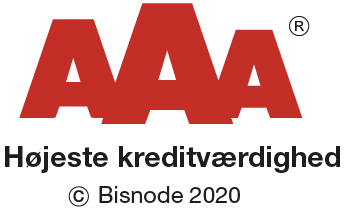
Artikel
The use of freelancers in marketing is increasing significantly. Here are the top 7 reasons
By Carsten Bjerregaard, founder of Marketingcapacity.dk
As Harvard Business Review, among others, has written about several times, there is a paradigm shift in marketing. So an increasing proportion of work is being done by freelancers. Not surprisingly, Corona gave an extra boost to the transformation.
The amount of freelance work in the US has increased by 22% from 2019-2020 in the US. And as much as 1/3 of the entire US workforce did freelance work during the Corona pandemic. Multiple studies have consistently shown that around 70% of US executives believe they will increase the use of freelancers in the near future.
Marketing, along with IT, are two of the areas where freelancers are used extensively, so it makes sense that the development will be even faster because it's not a new practice that needs to be introduced. It is an existing modus operandi that is being accelerated. At Marketingcapacity.dk, we clearly notice this development. We are being contacted by more and more companies looking to work with marketing freelancers, either to supplement their team with new skills or as reinforcement during busy periods.
We also see a clear trend that more companies are looking to work with freelancers as an alternative to using advertising agencies and consultancies. The reason is often a desire for closer and easier collaboration on a day-to-day basis, but also to get more work done within budget.
Here's my take on the main reasons why the use of freelancers in marketing is increasing significantly and why this trend will continue for years to come:
1. Covid has changed the mindset on both sides of the table
There is probably no single explanation for why the marketing function will become an even greater mix of permanent employees and freelancers in the future. But in our experience, it's largely due to a change in mindset among the players in the market.
2. More working from home has shattered the black and white image of how a workplace works best
Flexibility has increased over the years, but with the lock-downs during the Corona pandemic, it happened really fast. Many have probably been surprised by how well it has worked. The use of tools like Zoom and Teams for meetings and Trello and Slack for agile collaboration has exploded, and many companies have found that they are just as effective with the new flexibility. Here it is probably relevant to talk about Corona creating 'visibility'. Because if it can work with remote employees, why shouldn't it also work well with freelancers?
3. Digitalization continues and companies need more diverse skillsets
Just 10-15 years ago, a typical marketing department looked radically different. The need for specialized functions was significantly lower than it is today. Here at Marketingcapacity.dk, we operate with over 30 titles/roles and a continuum of contract lengths and volumes. When you think about it, it's funny that companies used to need exactly 37 or 20 hours of work from a given employee every week. We believe that the new flexibility allows for better solutions and more skills.
4. Value for money
The prospect of getting more or better work done within the same budget is one of the strong drivers behind the increased demand for freelance specialists. Roughly speaking, you can get 150-200 hours of work for the same amount as 100 hours through an agency.
Agencies and consultancies are organized differently than independent freelancers, which results in a number of overheads (costs for premises, operations, administrative functions, management, company cars, sales, marketing, unsold hours, etc.
5. insourcing trend
Many companies are currently looking to insource a number of functions to get a better feel for the business. Digitalization has made it even more important to get closer to day-to-day data to gain a sufficient understanding of customers, the customer journey, digital channels and business KPIs.
Many see and treat freelancers as an internal resource in their day-to-day work, and a large part of the work is done in-house in close collaboration with the permanent team. This way, you get the best of both worlds. Flexible access to specialized skills and a high level of integration and spillover of important knowledge within the company. In addition, it is significantly easier to brief and manage projects with an internal resource than an external one.
6. The supply of top-shelf freelancers is increasing
As companies increasingly welcome freelancers - even for the most interesting and important tasks - more of the most talented people in the marketing and advertising industry are choosing to become freelancers. Because now everyone can see that the ice is breaking. The best and brightest are needed on a freelance basis, and they believe, like me, that this is a trend that will continue. So many people want to 'have their own name on the door' rather than rely on an entire agency around them. Just like they want to manage their own workday and career. They have self-esteem and they have integrity when it comes to tasks. And for businesses, it's gratifying that you can now get absolutely outstanding talent on very favorable terms compared to going through an advertising or consulting agency.
7. Strategic implementation on the way
According to an article in The Harvard Gazette, in the near future we will see a trend towards more companies making the use of freelancers a strategic choice and developing actual policies on how to recruit and work with freelancers.
In other words, we go from thinking of freelancers as an ad-hoc resource to a part of the strategic setup that will strengthen the permanent team on a daily basis. At Marketingcapacity.dk, we have always seen freelance collaborations in this way. This is one of the reasons why we consistently offer our customers
Help to select: Our platform is designed to make it easy for a company to create their own lists of potential freelancers. For example, if you need to find a digital project manager. However, we often go in and help select suitable candidates for the company to meet before they make the final choice. There are several factors that go into the perfect match:
- Professional level and competencies (often a combination of several competencies is sought)
- Industry experience
- The freelancer's place of residence and distance to the company (so part of the work is done at the company)
- Freelancer availability (time available during the requested period)
- Personal chemistry
Control over contracts: We always ensure that agreements are quickly put in place when we broker collaborations. It gives the company extra peace of mind that there are clear lines. For example, regarding payment, rights to material, confidentiality, insurance, etc.
Time and money management: For the company - and at least as much for the freelancer - it is important to keep track of time and money. That's why Marketingcapacity.dk provides a service with detailed weekly reporting of tasks and time spent. And we make sure that the freelancer is paid after 2 weeks, even if the company has a longer payment deadline. Projects run best when the framework is clear, and freelancers work best when there is security and stability in the collaboration.
Where do you draw the line?
While there will always be a need for agencies, many tasks can be done more cheaply and efficiently in close collaboration with independent marketing specialists and creatives. And it has proven relatively easy for companies to gradually adapt to this way of working.
Personally, I can imagine that in the near future, freelancers will make up 50% of the resources that a large company draws on. And one thing I can predict: In the next 5 years, the trend towards a greater supply of skilled freelancers and companies' more strategic search for freelancers will continue and probably even accelerate further.

